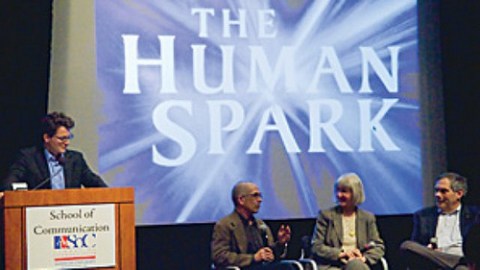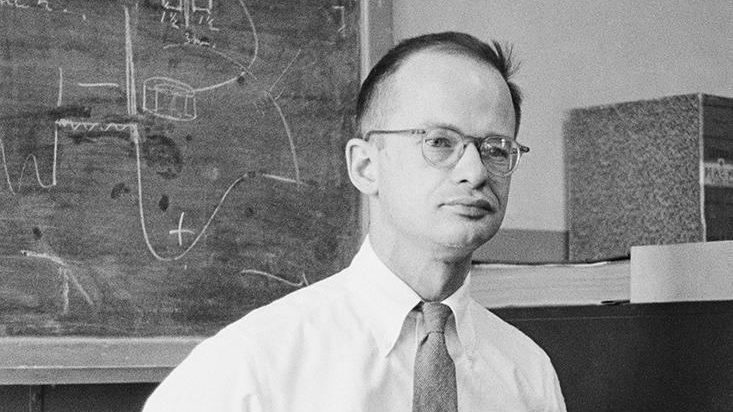Award Winning American University Filmmaker Discusses Bringing Science to Life on Screen

In February, as part of the Science in Society Film and Lecture series at American University, we hosted a screening of the PBS series The Human Spark. Hosted by Alan Alda, the series was directed by School of Communication professor Larry Engel and was awarded the AAAS Kavli prize for broadcast science journalism. Human Spark explores what makes us unique from other animal species, probing our ancestry, past and human nature.
After the screening, I moderated a panel featuring Engel, Eugenie Scott of the National Center for Science Education, and Jay Labov of the National Academies. Our discussion ranged across themes related to science communication and education including the continued debate over the teaching of evolution in schools.
To open the panel, I remarked that scientists are often described as supposedly poor communicators, but in the Human Spark series each of the scientists appears as a master communicator. One reason I suggested was the conversational style of interview that Alda engaged each scientist in and Engel’s ability to bring the viewer directly into this conversation as if you were a third person standing there with the duo. This approach to science documentary filmmaking was very different from the traditional approach of sitting a scientist down in a chair and asking them questions.
In a video clip below from the panel, Engel explains this successful approach to bringing the best out of scientists as communicators and educators on screen.
* This is the first of several summaries of the panel with video clips that I will be posting.





